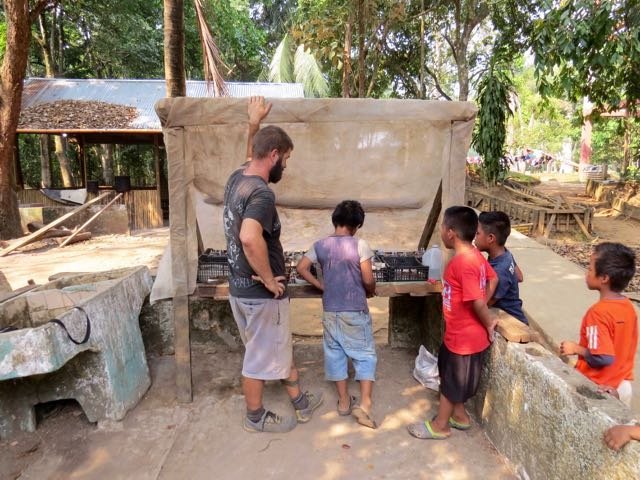
The Top Three Ways to Share Sustainability Knowledge as a Traveller
Ironically, the First World leads the way in both pollution and sustainability. In many ways we are well aware of our love of excess, and are focussing more and more on how to shift to more sustainable practices.
Comparatively, in other parts of the world sustainability couldn’t be further from the mind. Maslow’s hierarchy of needs tells us that surviving in the short term will always outweigh the larger, and, for those in underdeveloped countries, almost unfathomable problem of the long-term survival of the planet.
As a traveller however, you can make a sustainability difference, no matter how small. By carefully spreading the sustainability word, you can set habits in place that may have a huge impact on the future of our little planet.
So, how do you best go about it?
Through Leading by Example
The first, and most important way, is to lead by example. Just as no-one takes a boss seriously if they don’t get their hands dirty every once in a while, no one will take your sustainability message seriously if you’re not walking the walk.
Carry a canvas bag with you to avoid using plastic. Buy carbon offset credits for all of your flights. Eat local, organic food. Seek out recycling bins wherever you can. People are far more likely to follow your actions than your words (particularly if you don’t speak the language). Show them the way.
Through Shared Experience
If you share an experience with a local, you’ll create a terrific bond. You’ll be befriended. You’ll be trusted. Your sustainability message, consequently, will be far better received.

Even if you are only having a two week vacation, volunteering to take part in a local environmental effort, even for only a day, is a fantastic way to share your knowledge as a sustainability-conscious traveller. Join a clean-up effort. Take part in the planting of some organic produce. Depending on where you find yourself, there may be a multitude of programs to which you could lend your expertise.
By Understanding the Local Situation
It is key to develop an understanding of the strengths and weaknesses of the area that you’re in. You may want to spruik the benefits of a recycling regime, but the local government may have nowhere near the required funds to develop one. Keep your sustainability suggestions realistic.
Suggest ways to repurpose waste. Offer viable alternatives to any harmful chemicals that may be used. Sell the advantages of retaining an area’s natural beauty. If your sustainability advice is achievable, the locals will be far more likely to take it on board.
It’s also vital to remain humble. If you’re in an underdeveloped part of the world, it is almost guaranteed that the country’s carbon footprint is far below that of your own industrialised country. So while the area may indeed suffer from the use of harmful chemicals or unbridled deforestation, comparatively, it probably doesn’t have as great a global impact as your own country, but every footstep forward is a step in the right direction.
Travel global. Think local. Stay humble. Act sustainable.












